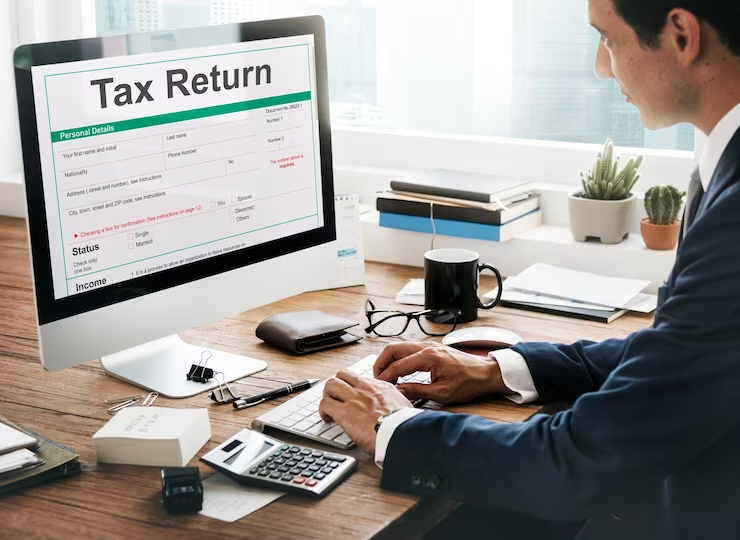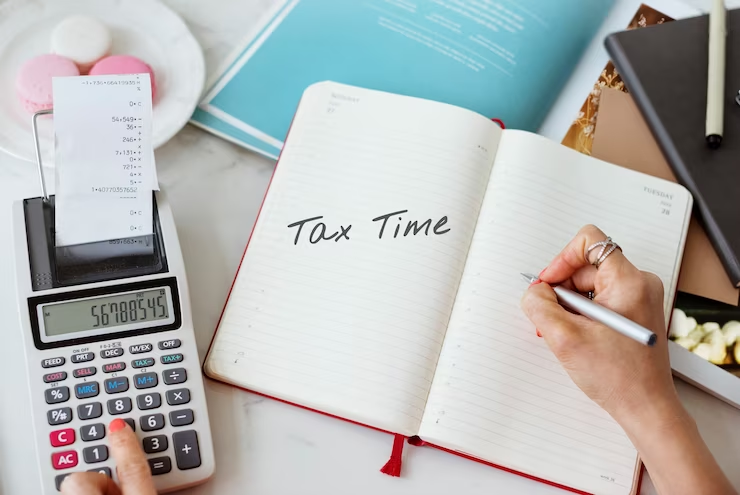How To Deal With Back Taxes And Unfiled Tax Returns

Image Credit: Freepik
If you are reading this, you are likely dealing with some tax-related stress. You might owe more than you expected or have missed a filing deadline. Whatever the cause, be assured that you are not alone.
Although dealing with unpaid taxes and unfiled tax returns can be intimidating, it is critical to take care of these concerns as soon as possible to avoid additional fines and interest costs and achieve financial stability.
The longer you delay, the more penalties and interest you can accrue, making paying off your tax burden and managing personal finances much more challenging.
Back taxes and unfiled returns frequently cause problems, including the damage they may do to your credit score. The Canada Revenue Agency (CRA) may file a tax lien against you, which will appear on your credit report and may harm your credit score.
So where do you even begin?
Continue reading for more information about how to achieve financial peace of mind and make your life better financially!
● Evaluate The Situation

Image Credit: Freepik
Assessing your situation is the first step in dealing with outstanding taxes and unfiled tax returns. This entails figuring out how many years of unfiled tax returns you have, the amount of back taxes you owe, and any incurred penalties and interest. As a result, you will be able to file your taxes easily.
1. Determine How Many Years Of Unfiled Tax Returns You Have
The longer you wait to file your tax returns, the more complex the procedure might get. If you have unfiled tax returns from several years, dealing with each separately is vital, beginning with the oldest.
You can ask the CRA for a transcript of your tax report to determine how many years of unfiled tax returns you have. This will demonstrate the tax years for which you submitted returns and those you did not.
2. Determine How Much You Owe In Back Taxes
If you owe back taxes, you must determine how much you owe. The CRA will issue you a notice of balance due, including the amount of taxes owed and any penalties and interest accrued.
For a complete accounting of your tax liabilities, including any payments or credits made to your account, you can also ask for a transcript of your tax account.
Also, read The Tax Benefits of starting a home-based business.
3. Determine Any Penalties And Interest That Have Accrued
You can also owe penalties and interest if you have unpaid taxes. The CRA imposes tax penalties for late filing, payment, and deposit. Even if you cannot pay your taxes in full, submitting your tax returns is still necessary because the penalty for failing to do so is frequently more significant than the penalty for failing to pay.
Interest is also charged on unpaid tax liabilities, and it accrues daily from the due date of the tax return until the date the tax is paid in full.
● File Your Unfiled Tax Returns

Image Credit: Pexels
It is time to file those taxes after evaluating your circumstances and identifying the years you have outstanding tax returns. Failure to file your tax returns on time is a financial mistake and may result in additional penalties and interest costs, so file as soon as possible.
1. Gather Necessary Documents
You must collect all the required paperwork, such as T4 slip, receipts, and any other evidence of income or tax credits and incentives, before you can file your tax forms.
If you do not have copies of these records, ask your employer or financial institution for them. The CRA can also offer pay and income transcripts for earlier tax years.
2. Fill Out The Appropriate Tax Forms
There are different tax forms to fill out for each tax year. The proper forms are available through tax preparation software or the CRA website. You can ask the CRA or a tax expert for assistance if you need help filling out the papers.
3. Submit Your Tax Returns To The CRA
You can send your tax forms to the CRA once completed. Your tax returns may be submitted in a few different ways.
You can mail each return separately to the appropriate CRA address if you have been submitting it for years. Alternatively, you can file your taxes online with tax preparation software or a tax expert.
Related: What To Do With Your Tax Refund!
● Address Your Back Taxes

Image Credit: Freepik
Now that you have filed your unfiled tax returns, it is time to deal with your back taxes and get ready for the next tax season. This means choosing a payment schedule that works for you, negotiating a smaller settlement payment with the CRA, and considering consulting a tax expert.
1. Determine A Payment Plan That Works For You
If you owe back taxes but cannot afford to pay them in full, you can set up a payment plan with the CRA. The CRA provides several payment schedule choices, including:
- Monthly— You can make monthly payments by pre-authorized debit from your bank account. This is a convenient option to spread your payments out over the year.
- Quarterly— You can choose to make payments every three months. This is a good option for making larger payments less frequently.
- Annually— You can make a single payment for the total amount owing once a year. This is a good option if you prefer to pay for everything at once.
- Payment in full— You can make a single payment for the total amount owing on the due date.
- Other options— The CRA may offer additional payment schedule choices depending on your circumstances, such as making installment payments for tax debt.
You can apply for a payment option online through the CRA website or by submitting the form.
2. Negotiate With The CRA For A Reduced Settlement Amount
If you owe the CRA a sizable sum in unpaid taxes, you might be able to bargain with them for a smaller settlement sum.
You must show that you cannot pay the total amount owed, even with a payment plan, to be eligible for an offer in compromise. The CRA will also require the specific financial details about your earnings, expenditures, and assets and the true state of your money.
If the CRA accepts your offer, you will have a deadline to make the agreed-upon payment.
3. Consider Hiring A Tax Professional
Dealing with unfiled tax returns and back taxes can be challenging, mainly if you owe a sizable sum of money. A tax expert may be helpful if you are confused or overwhelmed about how to proceed.
A tax expert can assist you with filing your tax returns, dealing with the CRA on your behalf, and deciding which payment plan or settlement choice is best for your circumstances. They can also offer helpful advice on how to prevent future tax issues and use your tax refunds.
● Avoiding Future Tax Problems

Image Credit: Pexels
When you have handled your unpaid taxes and unfiled tax returns, you should take precautions to avoid future tax troubles.
This includes:
1. Stay Up-To-Date On Your Tax Filings
Being current on your tax files is one of the best strategies to avoid potential tax difficulties. Every year, file your tax returns on time and pay any outstanding taxes in full or establish a payment schedule.
If you are self-employed, be careful to pay anticipated taxes on time throughout the year to avoid a big tax bill at the end of the year.
2. Keep Good Records
Maintaining accurate records can also help you prevent future tax issues. Ensure you arrange and maintain easy access to your tax-related papers, such as
- Bank Statements
- Invoices
- Receipts
If you work for yourself, keep thorough records of all your earnings and outgoing costs, including mileage logs and invoices for work-related expenses.
3. Seek Professional Help If Needed
It could be beneficial to seek professional assistance if you are unsure how to manage a tax-related issue, slam the tax scam, anticipate a sizable tax payment, or claim a tax refund. A tax expert can offer helpful direction and recommendations on how to move forward.
Summary
In summary, here are the key takeaways from this blog:
- The initial step in dealing with back taxes is filing unfiled tax returns.
- You can file your taxes manually, electronically, with tax preparation software, or by hiring a tax expert.
- You can work out a payment plan with the CRA to take care of your back taxes, bargain with the CRA for a smaller settlement sum, or hire a tax expert.
- Stay current with your tax filings, maintain appropriate records, and seek professional guidance to prevent more tax issues.
You should remember that handling unpaid taxes and unfiled tax returns can be difficult, but taking action now will help you prevent additional fines and interest. By following the steps outlined in this article and seeking expert assistance, you can secure your financial future, build long-term wealth, and achieve the life of your dreams.
So, what are you still holding out for?
Take action today and begin working on resolving your tax problems. We believe in you!
Trust us! You will feel a huge weight lifted off your shoulders once you do.


